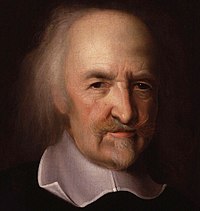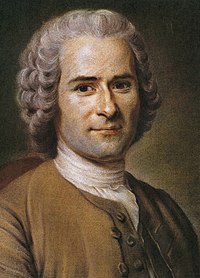
Sunday, May 23, 2010
Introduction to Political Philosophy

About Professor Steven B. Smith
Sunday, May 16, 2010
Setting the Stage for Social & Political Philosophy
Both the Progressive and conservative movements within the American idea consider the greek philosophers as the root of their ideals. Obviously a divergence since then has led to the current chasm that exists between the two.
In a series by renowned Professor Emeritus of Political Science Charles Anderson, iTunes University offers a series of lectures that provide valuable insight into these places and the roles that they played in the development of political thought.
Egypt, Mesopotamia and Ancient Israel: 48:59 Professor Charles W. Anderson Political, Economic and Social Thought
Discovery Channel: Seven Wonders of Ancient Greece
Greece Part 1] [Greece Part 2] [Greece Part 3] [Greece Part 4] [Greece Part 5]
Ancient Greece - Democratic Experiments 41:36 Professor Charles W. Anderson Political, Economic and Social Thought
Ancient Greece, cont. The Pre-Socratics 44:59 Professor Charles W. Anderson Political, Economic and Social Thought
The Republic, Plato's greatest work
 Plato 428/427 BC – 348/347 BC), was a Classical Greek philosopher, mathematician, writer of philosophical dialogues, and founder of the Academy in Athens. The prized student of Socrates and the teacher of Atistotle. Plato with Socrates and Aristotle helped to lay the foundations of natural philosophy, science, and Western philosophy.
Plato 428/427 BC – 348/347 BC), was a Classical Greek philosopher, mathematician, writer of philosophical dialogues, and founder of the Academy in Athens. The prized student of Socrates and the teacher of Atistotle. Plato with Socrates and Aristotle helped to lay the foundations of natural philosophy, science, and Western philosophy.
Resource Links
The Social Contract as the Underlying Theme
All three embrace the idea that there must be a social contract in order for government and society to function in an orderly way. However, the three draw quite different conclusions from this starting-point. Hobbes advocated an authoritarian monarchy, Locke advocated a liberal monarchy, while Rousseau advocated liberal republicanism. Their work provided the theoretical groundwork of constitutional monarchy, liberal democracy and republicanism. The Social Contract was used in the Declaration of Independence as a sign of enforcing Democracy.
The Social Contract: Wikipedia
Rousseau On the Social Contract - Nigel Warburton
The Partially Examined Life - Hobbes
Resources for Further Understanding:
The Social Contract: Rousseau's Book - Text
The Social Contract - Rousseau, Audio
Thomas Hobbes (5 April 1588 – 4 December 1679)

In some older texts known as Thomas Hobbs of Malmsbury, was an English philosopher, remembered today for his work on political philosophy. His 1651 book Leviathan established the foundation for most of Western political philosophy from the perspective of social contract theory.
The notion of the social contract implies that the people relinquish their sovereignty to a government or other authority in order to receive or maintain social order through the rule of law. It can also be thought of as an agreement by the governed on a set of rules by which they are governed. Social contract theory formed a central pillar in the historically important notion that legitimate state authority must be derived from the consent of the governed.
Like many of the philosophers of his time, Hobbes also contributed to a diverse array of fields, including history, geometry, physics of gases, theology, ethics, general philosophy, and political science. His account of human nature as self-interested cooperation has proved to be an enduring theory in the field of philosophical anthropology. He was one of the main philosophers who founded materialism.
The Elements of Law Natural and Politic
Jean-Jacques Rousseau (28 June 1712 – 2 July 1778)

Jean-Jacques Rousseau (28 June 1712 – 2 July 1778) was a major Genevois philosopher, writer, and composer of the 18th-century Enlightenment. His political philosophy influenced the American and French Revolutions and the development of modern political and educational thought.
His novel, Emile: or, On Education, which he considered his most important work, is a seminal treatise on the education of the whole person for citizenship. His sentimental novel, Julie, ou la nouvelle Héloïse, was of great importance to the development of pre-Romanticism and romanticism in fiction.
"The Social Contract"
Rousseau's "Social Contract" explores the foundation of society. Breaking with John Locke's belief in self-evident truths, Rouseau argues that society and law is the product of general will rather than enlightened reason. Listen.